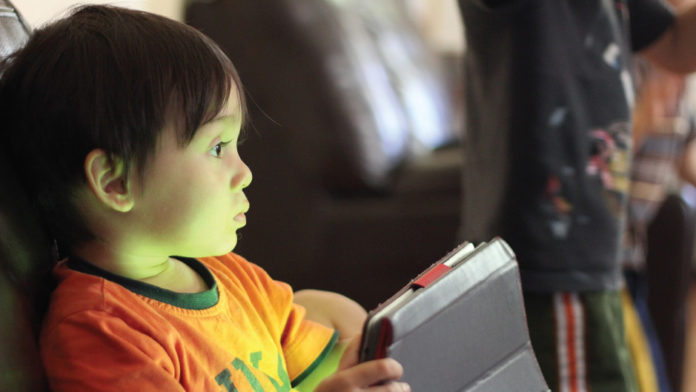Just a few decades ago, people had doubts about the technology industry. Darryl Zanuck, the studio head of 20th Century Fox famously said, “Television won’t be able to hold on to any market it captures after the first six months. People will soon get tired of staring at a plywood box every night” (1946). Contrary to his belief, statistics show television watching typically begins as early as 9 months of age, and remains a popular form of media throughout life.
This poses a challenge for parents, especially now that television has been joined by the internet, video games, and smart phone apps. Recognizing the issue and as a parent himself, Jason Daniels collaborated with Harvard University and the Alberta Teachers’ Association on a long-term research project called Growing Up Digital (GUD) Alberta.
“As a parent, I am struggling with a lot of the same issues that every other parent out there is with trying to understand how to raise children in an environment that is completely immersed in technology,” says Daniels, who is Associate Director of Research at the University of Alberta’s Faculty of Extension.
GUD focuses on examining the physical, mental and social consequences of digital technology on Alberta’s children and youth in various fields such as exercise, identity formation, distraction, and nutrition.
In December 2015, the study surveyed 2,200 teachers and principals from across Alberta. This survey revealed that many teachers noticed changes in their students including high levels of distraction, which they believe to be in part due to technology.
Currently, Daniels and his colleagues are working on launching a parent survey that will help them better understand the impact of technology in households. After this step, they are planning to contact the students directly to observe and track their development over time.
But children are not the only ones vulnerable to the impact of technology. As a professor, Daniels also has some concerns regarding his university students.
“My biggest concerns are related to the impact that digital technology use has on perseverance and on attention,” says Daniels.
He worries that because search engines like Google provide instant answers to nearly any question, students are becoming reluctant to add any effort and engage in the process of finding the answer themselves.
He also notices that at the slightest sign of boredom, students instantly turn to their phones to check their Facebook or Instagram.
“So even though I try very hard to ensure that my lectures are engaging, I worry what the long-term impact of this is. I think that we don’t appreciate the impact of being bored on things like creativity.”
Technology is here to stay, and it is our responsibility to use it wisely. Daniels’ final advice is to check in with ourselves and evaluate whether our media use is impacting our lives in a negative way.








































